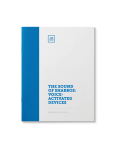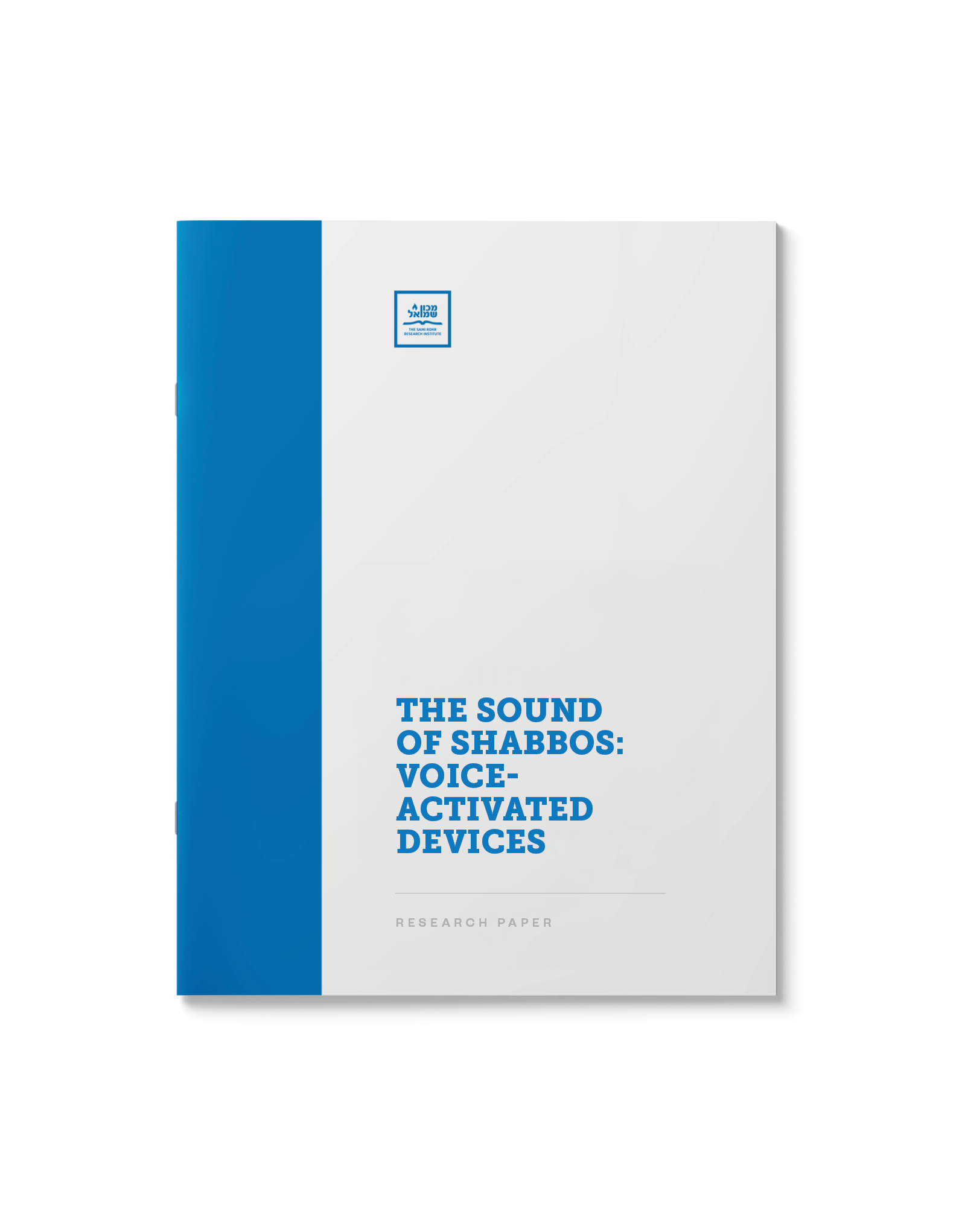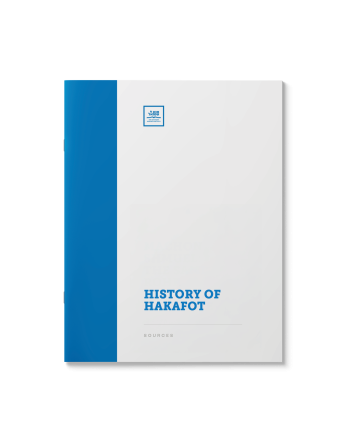The Sound of Shabbos: Voice-Activated Devices
$39.00
Have you set up “Hey Siri!” on your iPhone yet? How about the Amazon Echo to obediently adjust your thermostat, turn on your lights and play your favorite music – all by the sound of your voice?
During the week this might be great, but what about on Shabbos? Do the laws proscribing creative activity extend to actions that result from our verbal expression? What if some technology was devised to act upon your thoughts?
Related: “An Uplifting Shabbos” and “Motion-Triggered Sensors”
| Language | English |
|---|---|
| Paper Type | Research Paper |
| Pages | 18 |
Related Products
The water used to bake Matzah must be mayim shelanu—water that had been drawn in the evening and left to cool overnight. What is the halachic background for this requirement?
This item features a summary
of halachic opinion regarding the use of Shabbos elevators and prepaid trains
and busses. It also surveys the halachic definition of creating “fire,”
and how poskim define the use of electronic devices and appliances on
Shabbos. This package includes an index with 25 copies of original responsa.
The uncertain ownership that yeshivah students have of their dormitory rooms creates chaos when it comes to Pesach preparations. This paper clears the confusion. Must they do bedikas chametz? If yes, with or without a brachah? And do they also need to sell the chametz?
The Blowing of the Shofar: Reasons and Significance
One of our most festive Holidays, an all-out celebration of the Torah, has neither Scriptural nor Talmudic basis.
These sources trace the development of this custom as well as many others related to Simchas Torah:
The yearly schedule for completing the reading of the Torah, the ensuing celebration and unique liturgy read on this occasion, the custom of dancing and circling the Bima seven times, other celebratory expressions such as marching with candles, torches and much more.
Also includes a collection of anecdotes regarding the importance of experiencing joy during this event.
(Hebrew)
The mandate to rest on Shabbos also precludes having work done for us by gentiles, under specific conditions.
May one send Priority, Express or 2nd Day Mail on Friday? What about ordering through Amazon Prime?
What may one say (or dictate) when scheduling shipping without violating Shabbos by proxy?
Shabbos is a day of physical delight and spiritual rejuvenation. Each of the Shabbos meals is designed with taste and splendor, which elevates the simple act of eating to being a Heavenly experience.
Of what mystical significance are the three halachically-mandated meals on Shabbos? How does Jewish mysticism transform our appreciation for the Shabbos in general, and our perception of the third Shabbos meal in particular?
Given that both Haman and ‘the Manna’ are spelled the same,
is there any deeper connection between the two?
Legend of a Cookie – The Purim cookie. Three corners, folded to swathe a filling. Supposedly it is named after the wicked Haman from the Purim story. How is this cookie reminiscent of the wicked Haman? (Sources)
The shofar is an ancient musical instrument used to call the Jewish people together. It was blown to announce the new month, before the commencement of battle, and other occasions. It is still used on Rosh Hashanah and the closing of Yom Kippur to call the people to repentance. When was the shofar used for the first time?
“If not for the last minute, nothing would get done.”
The Mishna (Avot 5:6) lists a number of unique items created on that first Friday during Bein Ha-Shmashos (the twilight hour between shkia and tzeis hakochavim).
If our Shabbos observance — characterized by abstaining from creative labor — is to be a reflection of Hashem’s abstention from creation, why must we not engage in creative labor during Bein Ha-Shmashos?
Some fascinating perspectives culled from the Midrash, Kabalah and Chassidus.
Inviting non-Shomrei Shabbat to attend Shul or meals at your
home is often also an invitation for them to drive on Shabbat. What are the
laws of this overlooked yet critical issue? Do the ends ever justify the means?
How can we balance our love for our fellow with our love for halacha?
Shabbat candles are perhaps one of the most evocative images of Jewish life. What is the source for this practice? Where, and how many, Shabbat candles are lit?















